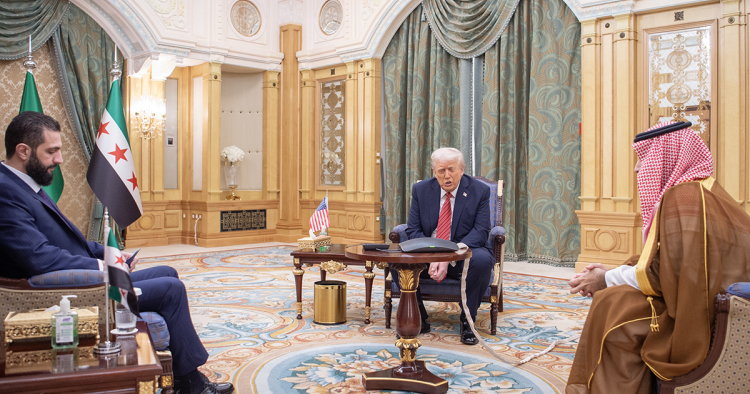
President Trump's Middle East Diplomacy: A Risky Bid for Peace
In a bold and controversial move, President Donald Trump met with Syria's newly installed leader, Ahmed al-Sharaa, in an attempt to further expand the Abraham Accords — a series of normalization agreements between Israel and several Arab nations. Al-Sharaa, a former figurehead of a U.S.-designated terrorist group, assumed control of Syria following years of civil war, foreign intervention, and the eventual collapse of the Assad regime.
The meeting, held at a neutral location in Oman, marks the first high-level U.S.-Syrian engagement in over a decade. The Trump administration framed the summit as a historic opportunity to pull Syria out of Iran’s orbit and integrate it into a new Middle Eastern order centered on regional cooperation and economic development.
Critics have raised alarms over legitimizing al-Sharaa, who until recently was under U.S. sanctions. Human rights groups and several members of Congress, including some Republicans, have expressed concern over the optics and implications of engaging a leader with a militant past. Nonetheless, the White House defended the strategy as pragmatic diplomacy designed to “stabilize the region through unconventional engagement.”
“This is about peace through strength and negotiation,” President Trump said during a brief press conference. “If Syria joins the Abraham Accords, it changes the game in the Middle East. It isolates Iran and opens the door to rebuilding the region economically.”
The diplomatic effort comes as the president faces domestic challenges. Republicans are pushing forward with a new round of aggressive tax cuts and spending reductions, part of what the administration calls the “America First Economic Revival.” However, the proposals have met fierce resistance from Democrats and some moderate Republicans, who warn of the long-term impact on the deficit and social programs.
While foreign policy successes could provide a political boost, Trump's outreach to a former adversary like Syria carries significant political risk. Whether the gamble pays off may depend on whether Syria commits to meaningful reforms and truly distances itself from extremist elements. For now, the world watches to see if Trump's unconventional diplomacy can bring another former foe into a fragile but growing alliance.
Author: Global Ripple
Posted on: May 14, 2025
 Global Ripple
Global Ripple